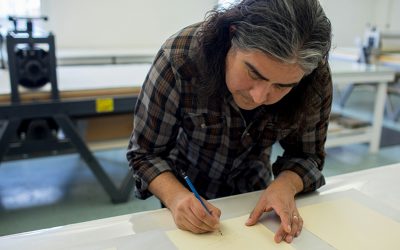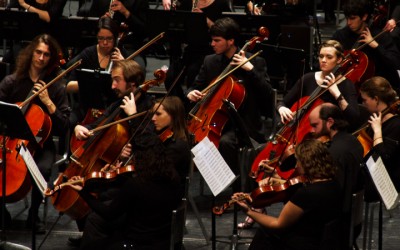Lecture by UNM Emeritus Distinguished Professor, Steve Feld: “HEARING HEAT: AN ANTHROPOCENE ACOUSTEMOLOGY”
Thursday February 22, 2018
2:00-3:30pm
Location: Waters Room, Zimmerman.
Bruno Latour argues that even if poisoned, the anthropocene is a deep gift to human research, inciting new approaches to environmental responsibility. Taking up Latour’s challenge through acoustemology, the study of sound as a way of knowing, this talk engages histories of hearing heat that affectively entangle cicadas and humans in Papua New Guinea, Japan, and Greece.
Steven Feld is an anthropologist, musician/sound artist, and filmmaker. His acoustemology research projects include rainforest sound ecology in Papua New Guinea, the history of bells in Europe, and jazz cosmopolitanism in West Africa. He taught in multiple fields for 35 years, the last 10 of them at UNM. Presently he is Senior Scholar at the School for Advanced Research in Santa Fe, working on Voices of the Rainforest, a documentary feature film building on a 7.1 surround virtual rainforest that he composed this year at Skywalker Sound.
Pulitzer winning alumnus Raven Chacon to debut new composition, perform
Pulitzer winning alumnus Raven Chacon to debut new composition, perform Tickets available for performances in Santa Fe, Albuquerque By Mary Beth King August 11, 2022 Pulitzer Prize winning Diné composer and sound artist Raven Chacon, who earned his Bachelor of Arts...
The American Prize in Vocal Performance—Women in Art Song and Oratorio, 2022 Winner
The American Prize National Nonprofit Competitions in the Performing Arts, David (Volosin) Katz, founder and chief judge, is honored to announce the winners, runners-up, and honorable mentions of The American Prize in Vocal Performance—women in art song and oratorio,...
UNMSO and UNM Choirs Present: A Concert For Healing
Friday, May 5 at 7:30 pmPopejoy HallUNM Symphony Orchestra directed by Dr. Matthew Forte.UNM Choirs directed by Dr. David Edmonds The UNM Choirs and Symphony Orchestra present a concert that speaks directly to the challenges faced by musicians during the COVID-19...



